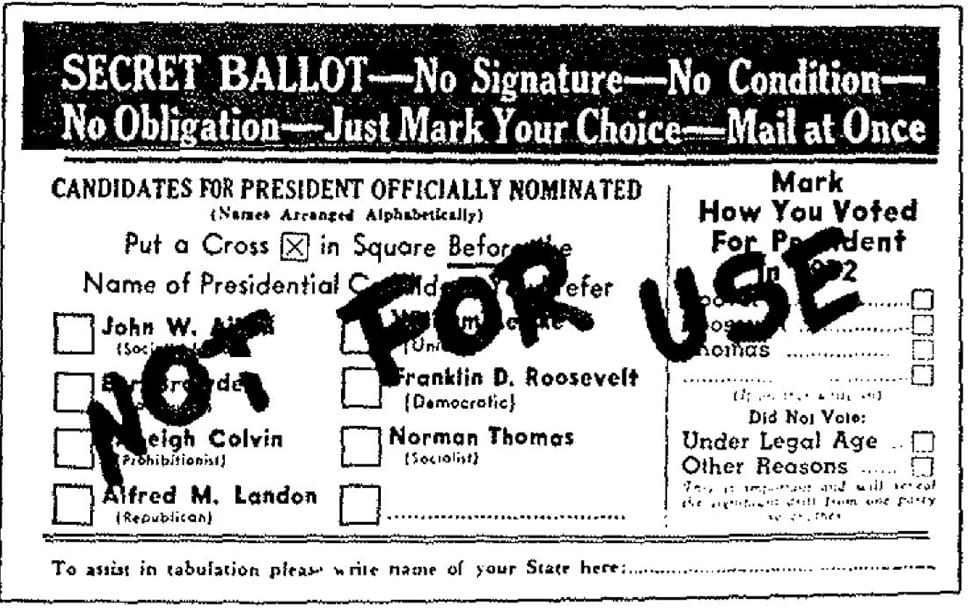Perlstein on polls

Here’s an interesting essay by Rick Perlstein on the history of polling, which I knew nothing about other than having heard about that infamous Literary Digest poll that said Alf Landon was going to trounce FDR. What I didn’t realize is that Literary Digest had done polls in the previous three presidential elections that turned out to be highly accurate, although the methodology — just having subscribers return a post card with their voting intentions — was not what you would call scientific.
Perlstein’s read of the literature is that the science of polling is “more art than science,” which is the expression that tends to get used when the empirical bona fides of a practice are at least somewhat shaky. Polling requires estimating what the voting population in a particular election will look like, and of course this can only be done by extrapolating from previous elections, but prior performance is no guarantee of future results, so . . .
The present presidential race appears to all indications to be so close — the consensus models have Harris with a 2.5ish% lead in the national popular vote, which happens to correlate pretty much exactly with what she would have to win that vote by to have a 50/50 shot at winning the EC — that predictions in regard to its outcome are totally dependent on the methodological assumptions pollsters make, and since those assumptions, per Perlstein’s analysis, are barely more than guesswork, that means the predictions themselves are at this point pretty much no more than that.
Perlstein’s piece includes a link to a pretty amusing takedown of Nate Silver for those of you who are into that kind of thing. His claim that there’s been very little advance in the science/art of predicting political races over the course of the last century isn’t something I’m competent to evaluate, but I have enormous respect for him as a historian and social critic, so I assume he has a good basis for making it.
